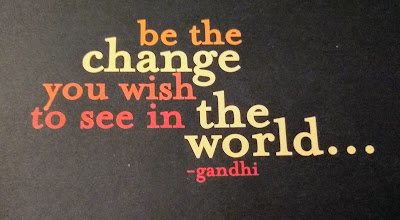Commentary: Thoughts on Political Leadership: Safeguarding The Bottom Line
Thoughts on Political Leadership:
Safeguarding The Bottom Line
Screenshot, via Merriam Webster Dictionary (term: bottom line; click onto image to view enlargement).
The keyword here being leadership.
Screenshot, via Center for Creative Leadership (click onto image to view enlargement).
What Is Leadership?
Leadership is defined by 3 outcomes — direction, alignment, and commitment — and it’s a social process, where individuals work together to produce results that they could never achieve alone.
The Definition of Leadership: It’s a Social Process
Leadership is often described by what a leader does or the capabilities they have. Yet while the skills and behaviors of individual leaders are important, the true meaning of leadership is about what people do together. Said another way, everyone in an organization contributes to leadership.
[...]
Furthermore, within the Summer 2016 edition of Dædalus (a publication of the American Academy of Arts and Sciences), concerning political leadership, there is the following summary of an essay provided (here):
Leadership, Equality & Democracy
Democracy is rooted in the idea of political equality, but wealth inevitably dictates that some citizens are “more equal” than others. Thus, profound and worsening socioeconomic inequalities pose a fundamental threat to Western democratic governance. In this essay, Nannerl Keohane argues that only passionate and pragmatic leadership—found with presidents and heads of government but also with congressional committees, local politics, and education—can overcome the dangers of a polity in which the power of money so exceeds the will of the people as effectively to veto social change.
What requires safeguarding during a humanitarian and social crisis, especially during periods of financial hardship and tight budgets, are the needs, lives as well as civil and human rights of those who are most in need; those who are the most vulnerable within society; people who are living unhoused (aka living homeless), people with disabilities, people labeled with serious mental illness or who experience severe emotional distress, people with serious and potentially life-threatening medical conditions, families with underaged children, those who are fleeing domestic abuse and violence, senior citizens.
That should be the utmost bottom line, the primary or most important consideration, nothing else.
What is crucial to keep in mind in all of this is that none of it is about having insufficient funds or resources available at various levels (whether it be at the federal, state or local level), rather it is about exercising the political will and making these matters a high priority in order to get something meaningful accomplished.
In addition, what often gets forgotten or neglected when political leaders and policy makers are factoring these equations into the mix, as part of their decision making process, is that there is also a high cost, both in financial as well as human terms, in doing nothing.
The fact is that whenever political leaders at either the state or local level have something that is a high priority to them and exercise sufficient political will, they find a way, they find the funds and get it done.
That requires effective leadership, something which has been seriously lacking at both the state administrative level (read: the Governor) and legislative level (read: the state Legislature) as well as local municipal level within Vermont for years, most particularly when it comes to meaningfully addressing homelessness and related matters.
Much of this is likely due to deliberate indifference as well as possibly having bigger fish to fry, so the can gets kicked down the road and the blame as well as buck continually gets passed, because those in positions of political leadership and power figure it is someone else’s problem, not theirs.
Definition of deliberate indifference (via Google Search):
Deliberate indifference is a legal term that refers to when someone is aware of a problem or danger and chooses to ignore it or take no action. It can be used in a variety of contexts, …
In the face of this, the question gets begged, what is one to do?
When the people lead, the leaders will follow.
(according to Google Search, the above quote is often attributed to Mahatma Gandhi, signifying that true leadership arises from the will and direction of the people, and leaders should respond to their needs and desires.)
Image: Photo of the front of an inspirational card someone gave me years ago (click onto image to view enlargement; text reads):
be the change you wish to see in the world...
-gandhi
Therefore, if we as a people and society want things to change concerning such matters, then it is up to us as a people and society to create meaningful change, including by changing elected political leadership at the state and local municipal level whenever necessary.
It is high time for ordinary citizens to take the lead and demand change if we want something meaningful and real to happen rather than continue expecting someone in positions of political leadership and power to eventually do so.
Otherwise, nothing will get done and then nothing will change.
This is why it is imperative to speak out, make one’s voice heard and vote count at both the ballot box as well as between election cycles.
As published (had submitted a trimmed down version to various publications across Vermont):
Read a related blog post of mine concerning these and related matters, here.
In addition, read another blog post of mine regarding "compassion fatigue", here.
- End Homelessness Vermont;
- Housing & Homelessness Alliance of Vermont;
- Homeless Shelters, Emergency Housing and Help for People Who Are Homeless (via VT Law Help);
Know Your Rights - Unsheltered in Vermont (via ACLU - VT; dated: 6/20/2023);
Vermont Advocacy Resource Toolkit (speak out and make your voice heard).







Comments
Post a Comment
Comments are moderated and posted at the blog administrator's discretion.